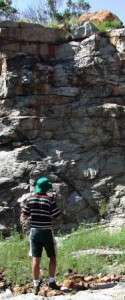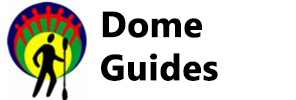 If found guilty of illegally guiding, an unregistered guide may be fined R5000. Any operator or company that employs unregistered guides shall be guilty of an offence and be liable on conviction of a fine of R10,000.
If found guilty of illegally guiding, an unregistered guide may be fined R5000. Any operator or company that employs unregistered guides shall be guilty of an offence and be liable on conviction of a fine of R10,000.
The definition of tourist guide is very wide and many working guides are exposed to prosecution. The aim of the Tourist Association is to assist all tourist guides in the Vredefort Dome area to become registered and to operate legally.
All adventure guides, nature guides and culture guides are welcome to join and gain the benefits of membership.
The Act defines a tourist guide as any person who for reward accompanies any person who travels within or visits any place within the Republic of South Africa, and who furnishes such person with information or comments with the regard to any matter.
Tourism Guiding is governed by the Tourism Act No 72 of 1993 which states that any person or body who wishes to operate as a tourist guide must be registered with the relevant Provincial Registrar, be in possession of a valid first-aid certificate, and must adhere to a code of conduct and ethics for tourist guides.
The controlling authority for guides is the Department of Environmental Affairs. The Tourism Act and the definition of a tourist guide cover all adventure guides (including river guides) nature guides and culture guides. The Act states further that no person who is not registered as a tourist guide may work and be paid for it as a guide.
The objectives of the Association are:
- To be the effective and unified voice for all categories of tourist guides
- To ensure compliance to a Code of Conduct and Ethics for all tourist guides in the Vredefort Dome area.
So if you are guiding and want to keep yourself out of hot water and be recognised as a professional, join the Association!
